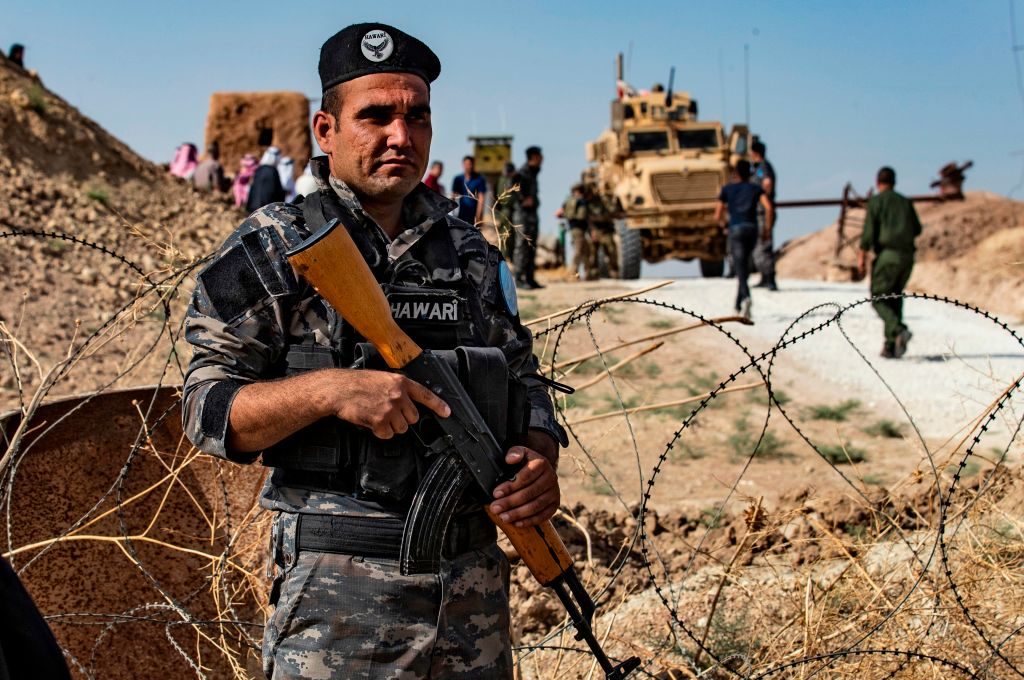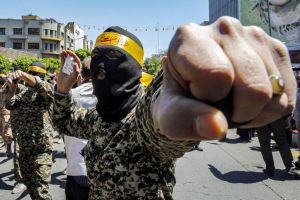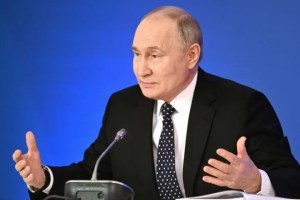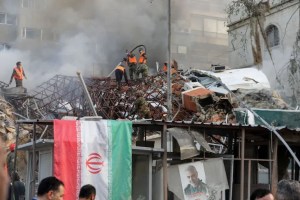Credibility used to be an important thing in US foreign policy, a guiding principle: hundreds of thousands of Americans in uniform died to maintain it. In 1969, with half a million American troops in Vietnam, Henry Kissinger wrote this in Foreign Affairs:
‘[W]hat is involved now is confidence in American promises. However fashionable it is to ridicule the terms “credibility” or “prestige,” they are not empty phrases; other nations can gear their actions to ours only if they can count on our steadiness. The collapse of the American effort in Viet Nam would not mollify many critics; most of them would simply add the charge of unreliability to the accusation of bad judgment. Those whose safety or national goals depend on American commitments could only be dismayed. In many parts of the world — the Middle East, Europe, Latin America, even Japan — stability depends on confidence in American promises. Unilateral withdrawal, or a settlement which unintentionally amounts to the same thing, could therefore lead to the erosion of restraints and to an even more dangerous international situation. No American policymaker can simply dismiss these dangers.’
It’s worth quoting that passage at length because of the way it speaks to the Trump administration’s decision, announced last night, to abandon America’s Kurdish allies in Syria. The Syrian Kurds have been helping the US fight Isis but they have another, separate conflict with Turkey. Over the weekend, the Turkish leader, Recep Tayyip Erdogan, warned that his forces would invade northern Syria within days. ‘We have given all kinds of warning,’ he said. ‘We have acted with enough patience.’ The Kurds replied that they would ‘not hesitate to turn any unprovoked attack by Turkey into an all-out war on the entire border’. At this point they still had some support from the Pentagon. A US military spokesman is quoted by the Kurdish news agency Rudaw as saying: ‘Any uncoordinated military operation by Turkey would be of grave concern…’ But then Erdogan telephoned Trump on Sunday. The result was a White House press release saying — with all the understatement it could manage — that Turkey would soon be ‘moving forward’ with its ‘long-planned operation’ into northern Syria. ‘The United States Armed Forces will not support or be involved in the operation, and United States forces, having defeated the ISIS territorial “Caliphate,” will no longer be in the immediate area.’ The Turks were going in and Trump had decided simply to get out of the way.
The problem is that at American insistence, the Kurds had previously dismantled fortified positions along the border with Turkey, withdrawing their troops and heavy weapons. In return, they got US security guarantees. Those guarantees have been shown to be worth nothing now that the Kurds are defenseless and Turkey has been given the go-ahead by President Trump to invade. To the Kurds and their supporters, this is a betrayal. The former US special envoy for defeating Isis, Brett McGurk, tweeted: ‘Bottom line: Trump tonight after one call with a foreign leader provided a gift to Russia, Iran, and ISIS.’ It would be interesting to know what discussions Russia had with Turkey about this — one source told me he thought Moscow had been twisting Erdogan’s arm to get the US out of Syria. Whatever the truth of that, the Kurds have been left seriously weakened, having believed American promises. They can do little more than bluster that they are ‘determined to defend north eastern Syria at all costs’.
Sunday night’s White House press release contains no call for restraint on the part of the Turks. It does, though, take a swipe at some of America’s other allies. The language is extraordinarily blunt. ‘The United States Government has pressed France, Germany and other European nations, from which many captured Isis fighters came, to take them back, but they did not want them and refused. The United States will not hold them for what could be many years and great cost to the United States taxpayer.’ In fact, it’s not clear how much — if anything — the US directly contributed to the cost of keeping Isis fighters in Kurdish prisons and their families in Kurdish camps. A lack of resources led to harsh conditions. The London Times correspondent Anthony Loyd visited a prison holding 5,000 Isis fighters in northern Syria. He took this photograph from a prison security monitor:
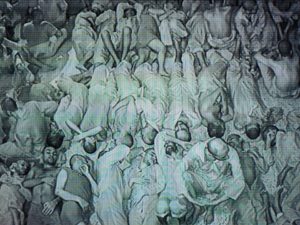
He wrote about it on Facebook: ‘[T]his prison looks guaranteed to prolong the life of Islamic State rather than shorten it…hadn’t everyone learned long ago (as if they needed telling in the first place) that when you treat prisoners like this the problem gets worse, not better? Apparently not.’ You can read his full report here. As the White House statement says, the Turkish Army will now take over these prisoners as the Kurdish forces flee. Will the Turks keep them in the same conditions? Or move them into Turkish jails? Or, faced with the prospect of ‘many years and great cost,’ will they just let them go? If that suggestion seems outlandish, remember how Ankara turned on — and then turned off — a massive flow of Syrian refugees in part to force the EU to grant visa-free travel for Turkish citizens. Will the jihadis become another useful bargaining chip for Turkey in its negotiations with the EU?
There is another outcome, still more outlandish but not beyond the bounds of possibility. It is that Isis prisoners are freed on condition that they renounce the ‘Caliphate’ and join one of the Syrian Arab militias allied with the Turkish Army. Some of these militias — once known as the Free Syrian Army — are Islamist in character; former Isis members might find themselves at home. For many years, Ankara quietly allowed Isis to use Turkey as a rear safe area – because Isis were fighting the Kurds. When the Turkish foreign minister, Mevlut Cavusoglu, says that Turkey will ‘clear terrorists’ from the region, he is talking about the Kurdish forces, the YPG and PKK, not Isis. Certainly, once in control of north eastern Syria, expect Turkey to send back some of the millions of Syrian Arab refugees it now hosts. This will change the ethnic balance is northern Syria. The Syrian Kurds, terrified of losing this territory forever, say they are already pulling back their forces from the fight with the remnants of Isis in order to confront the Turkish invaders. As Michael Weiss writes in a brilliant piece here, all this could well lead to a revival of Isis.
The president is running into serious resistance from his own party. Sen. Lindsay Graham tweeted: ‘We will introduce bipartisan sanctions against Turkey if they invade Syria and will call for their suspension from NATO if they attack Kurdish forces who assisted the US in the destruction of the Isis Caliphate.’ In reply, Trump has unleashed a series of tweets defending his decision. ‘The Kurds fought with us, but were paid massive amounts of money and equipment to do so. They have been fighting Turkey for decades…I was elected on getting out of these ridiculous endless wars, where our great Military functions as a policing operation to the benefit of people who don’t even like the USA…The endless and ridiculous wars are ENDING! We will be focused on the big picture, knowing we can always go back & BLAST!’
Much of that is true. Trump was elected on a platform of getting out of foreign wars. The US military can always ‘go back in and blast’. And Vietnam shows the cost in blood of maintaining ‘credibility’. But there is a cost to breaking your word, too — for Trump, and the US, that may be apparent only later.
Paul Wood is a BBC correspondent.
